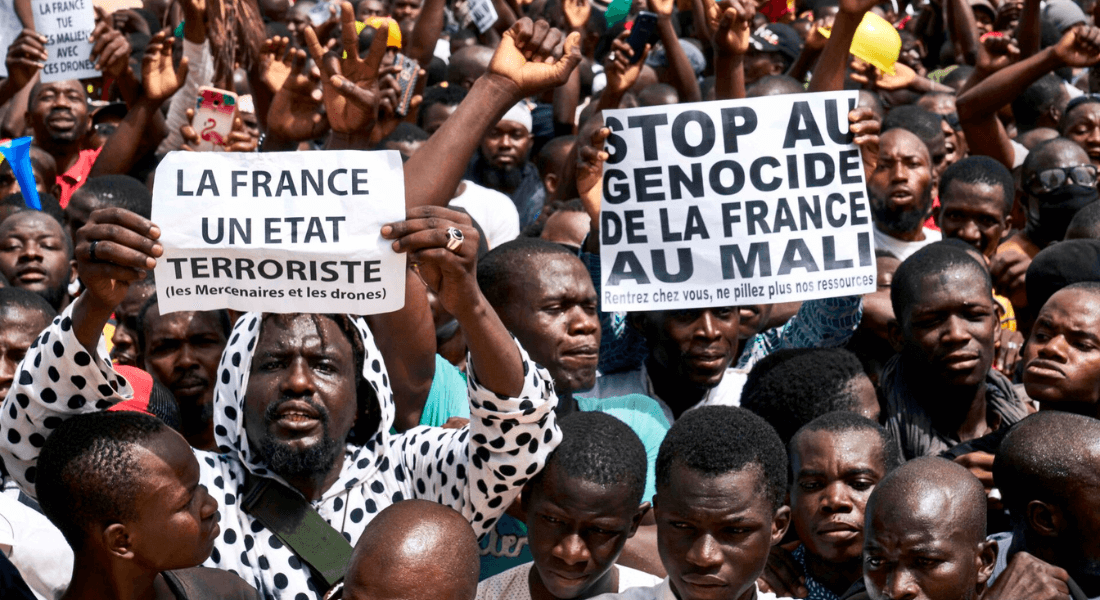West Africa's Sahel region in times of rupture and shifting global political orders
CAS, in partnership with the Danish Institute for International Studies (DIIS), will host a seminar discussing the dynamics of recent political changes in West Africa.
West Africa has recently witnessed a number of military coups and uprisings. Since 2020, new military leaders have overthrown the presidents of Mali (August 2020 and May 2021), Guinea (September 2021), and Burkina Faso (January and September 2022). In Burkina Faso and Mali, the inability of the former regimes to deal with spiraling insecurity and a growing jihadist insurgency have been important drivers of democratic unrest. While insecurity has been deepening and spreading after over a decade of western-led military and civilian operations to counter terrorism and instability in Mali and the broader Sahel, still more West African countries are renewing ties with Russia. While often portrayed by policy makers and Western media as an unfavorable ‘coup epidemic’ in a renewed ‘scramble for Africa’ in the wake of the Russian invasion of Ukraine, the series of coup d’états are expressions of public protest and a call for an anticolonial and less western dominated global order. These political changes occur simultaneously with growing regional insecurity where armed state and non-state actors are escalating violence with severe human consequences including killings of civilians and forced migration. The recurrent Sahelian security challenges continue to be nourished by ongoing militant jihadists struggle, weapons proliferation, drug and human smuggling in the Sahel and in the Maghreb.
To better understand these volatile dynamics and their geographical dimensions, this seminar organized by Centre of African Studies (University of Copenhagen) and the Danish Institute for International Studies brings together prominent speakers to discuss these important developments from global, regional and national perspectives.
 Credit: Michele Cattani/AFP/Ritzau Scanpix
Credit: Michele Cattani/AFP/Ritzau Scanpix
Programme:
15.15-15.30: Welcome and Opening remarks:
Karen Lauterbach, CAS and Signe Marie Cold-Ravnkilde, DIIS
15.30-15:50: West Africa’s Politics of Coups and the Role of Regional Actors
Speaker: Kamissa Camara, University of Oxford
Kamissa Camara is a PhD candidate at the Department of Politics and International Relations at the University of Oxford. Her research focuses on the regional and international responses to African military coups. Before joining Oxford University, Camara served as Mali's Foreign Minister, Chief of Staff to the President and prior to these roles, she held several leadership positions with Washington-based organizations.
15.50-16.10: Changing political orders: The relationship between Mali and France
Speaker: Gabriella Körling, Swedish Defence Research Agency (FOI)
Gabriella Körling holds a PhD in cultural anthropology. Her research has explored the different facets of state-society relations through a focus on infrastructure, urban development and public service provision mainly in Niger. She is currently working as an analyst at the Swedish Defense Research Agency (FOI) where she focuses on political and security developments in the Sahel.
16.10-16.30: The crime-terror nexus in Sahel borderlands
Speaker: Promise Frank Ejiofor, University of Cambridge
Promise Frank Ejiofor is a doctoral student in Development Studies at the University of Cambridge, where he is a Gates Cambridge Scholar. Holding an MPhil in Social Anthropology from Trinity College, University of Cambridge, and an MA in Political Science from Central European University (CEU), his research interests lie at the intersection of nationalism, citizenship, ethnic politics, and international security with a focus on Africa.
16.30-16.50: Religious movements and Radicalization in the Sahel
Speaker: Bulama Bukarti, Tony Blair Institute for Global Change and Bridgeway Foundation
Bulama Bukarti is a Nigerian analyst and researcher specializing in conflict and security issues in Africa, particularly in the Sahel region. Currently a Senior Fellow at the Tony Blair Institute for Global Change and the Vice President of Programs at the Bridgeway Foundation, he focuses on tracking and analyzing the activities of violent extremist groups such as Boko Haram and the Islamic State in West Africa. Bukarti is also a frequent commentator on Nigerian and African security issues in international media outlets.
16.50-17.10: Discussants
Eric Komlavi, RUC, Signe Marie Cold-Ravnkilde, DIIS
17.10-17.30: Final discussion, questions from the audience
17.30-18.30: Reception
The seminar will be chaired by Karen Lauterbach (CAS).
Registration (CLOSED)
Please register via this link.
Registration deadline: 23 May 2023
